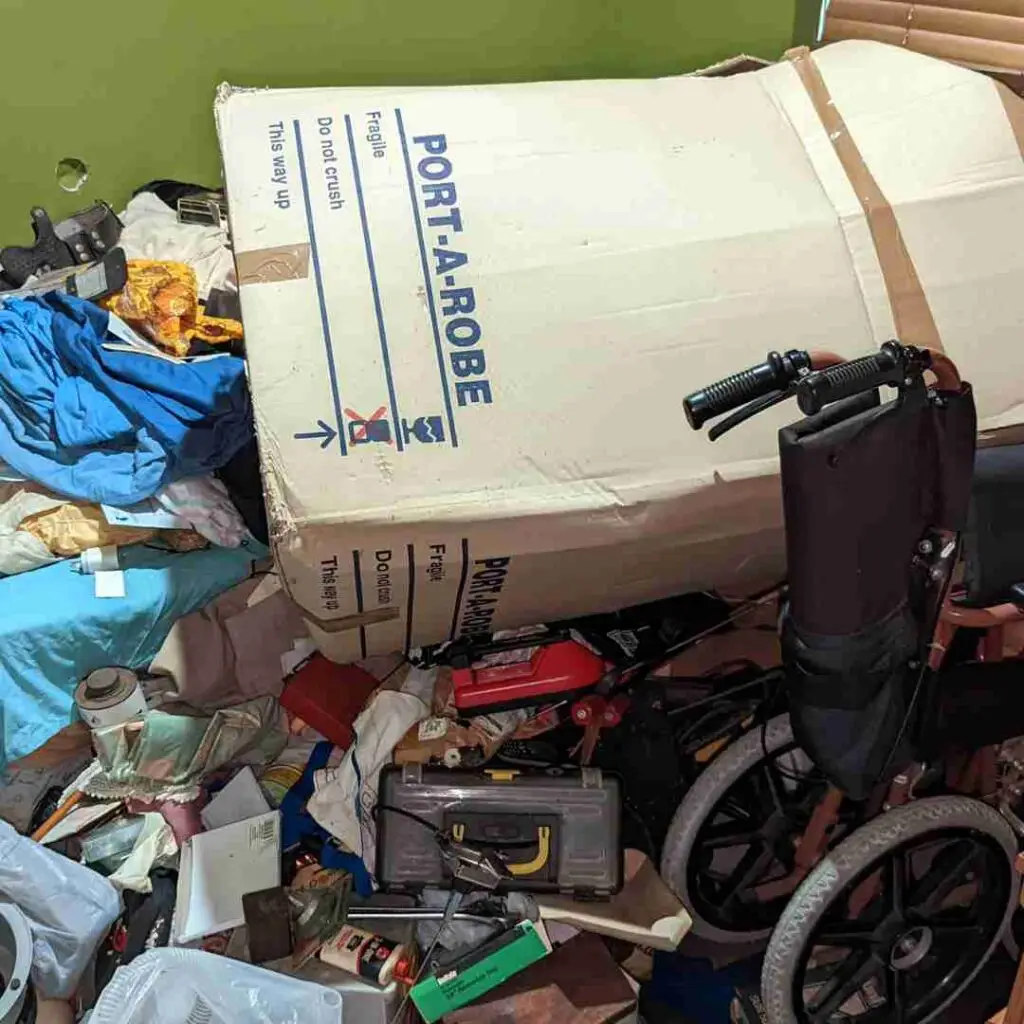Introduction
Hoarding and squalor issues are not only emotionally challenging but can also pose significant health and safety risks to the individual and their family members. When a loved one suffers from these issues, it becomes essential to understand the complexities, recognize the signs, and take appropriate steps to help them. This blog post aims to delve into the difficulties faced when a family member has a hoarding or squalor problem and offers insights on how to manage and overcome these challenges.
Understanding Hoarding and Squalor
Before we delve into the difficulties faced by families, it is crucial to understand what hoarding and squalor entail. Hoarding is a psychological disorder characterized by the excessive acquisition of items, difficulty discarding possessions, and an inability to organize them. Squalor, on the other hand, refers to extreme filth and clutter, often resulting from neglect or an inability to maintain a clean and orderly living space.
The Challenges Faced by Families
Emotional and Mental Strain
One of the most significant difficulties faced by families dealing with a loved one’s hoarding or squalor issue is the emotional and mental strain. The family members may feel a range of emotions, including frustration, anger, sadness, embarrassment, and helplessness. It can be particularly challenging for the family to understand why their loved one cannot let go of seemingly useless or unimportant items or maintain a clean living environment. This emotional strain can lead to strained relationships and even trigger mental health issues like anxiety and depression.
Health and Safety Risks
Hoarding and squalor can create numerous health and safety risks for the individual and their family members. These risks may include:
- Increased risk of falls, injuries, or accidents due to clutter and disorganization
- Fire hazards from excessive accumulation of items, blocked exits, or improper storage of flammable materials
- Infestations of pests like rodents, insects, or other vermin
- Mold and mildew growth due to poor ventilation or water damage
- Increased risk of illness due to unsanitary living conditions or exposure to harmful substances
Legal and Financial Issues
In some cases, hoarding or squalor can lead to legal and financial problems for the family. If the situation becomes severe, local authorities may intervene, which can result in fines or legal action. Additionally, the cost of professional cleaning services, pest control, and home repairs can add up quickly and put a strain on the family’s finances.
Impact on Daily Life
A family member’s hoarding or squalor issue can significantly impact the daily lives of other family members. It may lead to reduced functionality in shared spaces, difficulties in hosting guests, and increased household responsibilities. In extreme cases, family members may need to relocate or find alternative living arrangements, further adding to the emotional and financial strain.
Overcoming the Challenges
Develop Empathy and Understanding
It is crucial to understand that hoarding is a mental health disorder, and those suffering from it often have deep emotional attachments to their possessions. Recognizing that your loved one is struggling with a psychological condition can help you approach the situation with empathy and compassion. Educate yourself about hoarding and squalor disorders to better understand their struggles and the reasons behind their behavior.
Open Communication
Establishing open and non-judgmental communication with your loved one is essential in addressing their hoarding or squalor problem. Discuss your concerns and the impact their behavior has on the family in a supportive and understanding manner. Encourage them to express their feelings and thoughts, and be prepared to listen actively.
Seek Professional Help
Dealing with hoarding or squalor issues often requires the help of mental health professionals who specialize in treating these disorders. Encourage your loved one to seek therapy, counseling, or support groups to address the underlying psychological issues contributing to their behavior. Additionally, consider involving a professional organizer or cleaning service with experience in hoarding situations to assist in decluttering and cleaning the home. These professionals are trained to handle sensitive situations with compassion and understanding, making the process more manageable for everyone involved.
Set Realistic Goals and Expectations
It is essential to set realistic goals and expectations when addressing hoarding or squalor issues. Understand that the process of decluttering and cleaning will likely be slow and require patience. Work with your loved one to develop a plan for tackling their living space, breaking it down into smaller, manageable tasks. Celebrate small successes along the way and acknowledge the progress made, even if it seems minimal.
Establish Boundaries and Offer Support
When helping a loved one with hoarding or squalor issues, it is crucial to establish healthy boundaries to maintain your own well-being. Offer support and assistance but recognize that you cannot force change or control their behavior. Encourage them to take responsibility for their actions and seek professional help to address their disorder.
Focus on Building a Supportive Environment
Creating a supportive and understanding environment is critical in helping your loved one overcome their hoarding or squalor problem. Encourage family members to educate themselves on the issue and offer emotional support. Consider joining a support group for families dealing with hoarding or squalor to share your experiences and gain valuable insights from others who have faced similar challenges.
Our Local Experience
At Clear-Out Group, my team and I work with many clients across the Central Coast and Lake Macquarie who are struggling with hoarding and squalor. It’s more common than most people realise — affecting families from all walks of life, often behind closed doors. These are not isolated cases but real issues impacting neighbours, relatives, and community members every day. Our role is to provide respectful, compassionate support while restoring homes to safe, functional spaces where people can live with dignity.
Conclusion
When a family member has a hoarding or squalor issue, it can lead to significant difficulties and challenges for the entire family. By understanding the complexities of these disorders, opening lines of communication, seeking professional help, and fostering a supportive environment, families can work together to overcome these challenges and help their loved one achieve a healthier, more functional living space. Remember that patience, empathy, and the right support can make an enormous difference.







